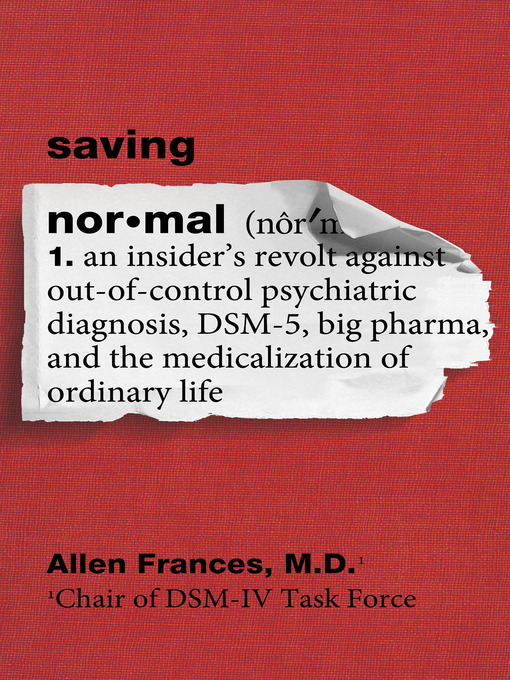International Bestseller • "An extraordinarily important book." —Marcia Angell, Harvard Medical School
A deeply fascinating and urgently important critique of the widespread medicalization of normality, by "one of the world's most prominent psychiatrists" (The Atlantic)
Anyone living a full, rich life experiences ups and downs, stresses, disappointments, sorrows, and setbacks. Today, however, millions of people who are really no more than "worried well" are being diagnosed as having a mental disorder and receiving unnecessary treatment. In Saving Normal, Allen Frances, one of the world's most influential psychiatrists, explains why stigmatizing a healthy person as mentally ill leads to unnecessary, harmful medications, the narrowing of horizons, the misallocation of medical resources, and the draining of the budgets of families and the nation. We also shift responsibility for our mental well-being away from our own naturally resilient brains and into the hands of "Big Pharma," who are reaping multi-billion-dollar profits. Frances cautions that the newest edition of the "bible of psychiatry," the Diagnostic and Statistical Manual of Mental Disorders-5 (DSM-5), is turning our current diagnostic inflation into hyperinflation by converting millions of "normal" people into "mental patients." Saving Normal is a call to all of us to reclaim the full measure of our humanity.




